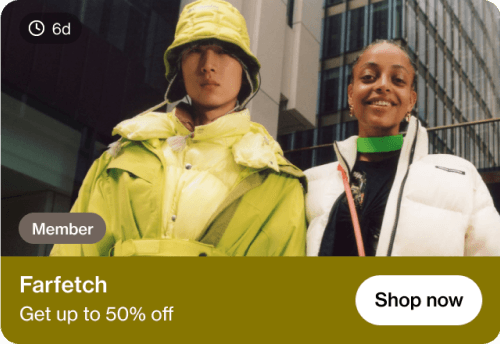

Older women are at risk, and nobody seems to care. That’s the message Jane Caro has been trying to push since discovering that women over 55 were the fastest growing group among the homeless in Australia. The figures are dire, as the Walkley Award winning columnist has pointed out time and time again, yet it still feels like nobody is listening.
First becoming aware of the “great hidden issue”, as she describes it, when researching her 2018 book, Accidental Feminists, Caro has since set out to uncover how it’s possible for two striking truths to exist — that her generation of women was the most revolutionary, yet are now at the highest risk of poverty.
“How can my generation be the first generation of women who have mostly earnt their own money for most of their lives, and yet when they get old they’re poor, they’re living out of their cars — huge numbers of them. Facing housing stress, poverty, terrible security in their old age. Accidental Feminists, is really the story of my generation and the promises that had been made to us, and then the way those promises were not kept, or were out and out lies quite a lot of the time.”
It’s a culmination of factors, according to Caro, that have led to such statistics, seeing a generation that “traded income for flexibility”, only to be faced with devastating impacts.


“When I found all this out I was so horrified and astonished, first of all that no one talks about it, and second of all, that all these women who are my school friends, my neighbours, the girls I went to uni with, had all gone out into the world, full of promise and hope, really thinking they were going to have good lives, and how so many of them had ended up in this dire situation. They’re the ones who’ve ended up in their cars or in fear of living in their cars.”
Caro, who ran for the Reason Party during the recent federal election, adds that while she hasn’t seen much change since beginning her advocacy, she does see the tide slowly beginning to change.
“One of the good things that is happening is people are speaking out about this a bit more, people are becoming more aware of it as an issue,” she says. “I’m really hopeful that in this election, the women’s vote will make a real difference.”
For Annabelle Daniel, CEO of the charity and non-profit organisation Women’s Community Shelters (WCS), older women and homelessness is one reality she’s far too familiar with. Speaking with Daniel about the growing issue, she notes it’s two key groups that have become a priority for the WCS in recent years — women over the age of 55 and women leaving domestic and family violence, most often who are left caring for young children. It’s a harsh truth to face, one we’re unfortunately, not used to being told.
As Daniel explains, who has been involved with the WCS since its inauguration, it’s far easier than one might imagine for women to be faced with these vulnerable situations.

“If you think about the numbers, there are about 400,000 women who are over 45, who are on low incomes and who don’t own homes in Australia. If those women experienced a chronic illness or they weren’t able to work for a period of time or they had an accident in an uninsured car, or any of those unpredictable life events, they can spiral into homelessness very quickly.”
She adds, “The other issue, too, is that with domestic and family violence, quite often, someone might try to leave a number of times, but if they can't find an affordable home to go to, or if they can't find support to help them untangle all of the bureaucratic and government pathways that they need to navigate at that time, then it might just be easier to go back.”
This is why, Daniel stresses, it’s crucial to have support readily available for women. The WCS is one of those organisations making strides to help.
“We've supported women who've come from incredibly traditional backgrounds, women who might have had a job, worked, raised a family, gone back to work part-time, and then they might have experienced domestic violence or the death of a spouse or a divorce. And that might have actually plunged them into a much more precarious position, particularly if they've had to leave and leave assets and finances behind.”

Beyond the organisations centres and housing, the WCS works hard to support the needs of each individual it comes across, be that through flexible funding, introductions to employment, educational training opportunities, or additional housing pathways, all of which have the same goal in mind — to build a brighter, more secure future. “Everybody is an individual and they have their own needs and their own aspirations. It's about supporting what they need.”
Donna Burke, the practice lead for WCS, is another at the forefront of the organisation’s efforts. After watching Daniel’s work at the organisation with “avid interest”, as she describes, Burke knew instantly she wanted to become involved. Her experiences over the past six years have taught her that the ‘face’ of homelessness in Australia doesn’t exist.

“What I’ve learnt, witnessed and acknowledged, is that anyone can be escaping homelessness and domestic violence. We have doctors, we have lawyers, we have dentists, we have professionals and we have mums — so the scope of women who come through our doors is varied.”
When it comes to what can be done to help further support women facing homelessness, both Daniel and Burke agree — affordable housing needs to be made more readily available, providing a stable backdrop for women to safely rebuild their lives.
“Social housing is essential because it forms the bedrock of people's lives to be able to raise their families, to contribute productively and to have that stability to be able to move forward with their lives. That's incredibly critical,” says Daniel.

Despite the undeniable toll the roles both Daniel and Burke take on each and every day, the two remain optimistic about the future.
“We’ve had such a national conversation about these issues in the last 10 years. We’ve had Australians of the Year like Rosie Batty and Grace Tame, who have highlighted violence against women,” says Daniel. “We are talking about the issue more, about older women’s homelessness, which has been important.
“I get to work with local communities to establish new shelters and to establish new housing options for women, and universally, what I see and the people I get to work with are incredible people on the ground, that I just want to get something done to help women and their kids — that's really inspiring to me, and it re-energises me all the time.”

Burke shares the same sentiment. “I remain hopeful. I have to stop and reflect and I myself and the managers and the caseworkers are the ones who witness the women coming in to the shelter. We are the ones that work with them and get them to move on to their new journey. To see that — I can’t put that into words. They come in broken and they’ll always have that scar there, but they know they’re not alone.






